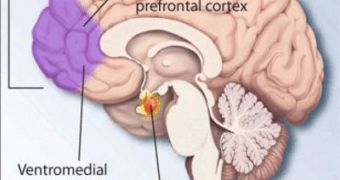According to the conclusions of a new scientific study, it would appear that the actions of a gene may also play an important part in determining which people go on to develop post-traumatic stress disorder (PTSD) after being subjected to one or more traumatic events.
At this point, the condition is considered by experts to be one of the most common major psychiatric disorders. The new investigation into its root causes was carried out by researchers at the University of Miami (UM) School of Medicine.
One of the most important things about this study is that it finds a starting point for studies meant to determine why some people develop PTSD following a traumatic event, whereas others don't.
Neuroscientists have suspected that there must be an objective reason why this happens, but they have thus far failed to discover it. The genetic link may be the breakthrough they were looking for all along.
UM assistant professor of psychiatry and behavioral sciences Amanda Myers, PhD, and her team published the results of their study in the latest issue of the top scientific journal Nature.
The main implication this study has is that it shows it's possible to develop personalized treatments for PTSD patients, that truly take into account each individual's genetic and health history.
“When someone goes through a trauma it is hard to know who to treat because not everyone exposed to trauma develops PTSD,” says Myers, who is also a coauthor of the Nature paper.
“Treating individuals who do not develop PTSD after trauma can actually be harmful; therefore it is crucial to discover biomarkers for who will develop PTSD as well as mapping pathways involved in PTSD to help develop better therapies,” she adds.
“Our new finding is one step in helping us figure out the biological markers and pathways involved in understanding who is at risk for developing PTSD,” Myers explains.
Also involved in the study were experts from the Emory University School of Medicine Department of Psychiatry and Behavioral Sciences. The pituitary adenylate cyclase activating polypeptide (PACAP) gene and its receptor PAC 1 were found to play a role in PTSD development.
Individuals who develop the condition have the PACAP gene expressed at very high levels. In past studies, it has been linked to regulating the response cells give to stressful stimuli.
“This is important work because at the current time there is no reliable set of predictors that can inform clinicians as to who will or will not develop PTSD after trauma exposure,” adds Charles Nemeroff, MD, PhD.
He is the Miller Professor at the UM Miller School, and also the Chairman of the Department of Psychiatry and Behavioral Sciences at the university, PsychCentral reports.

 14 DAY TRIAL //
14 DAY TRIAL //